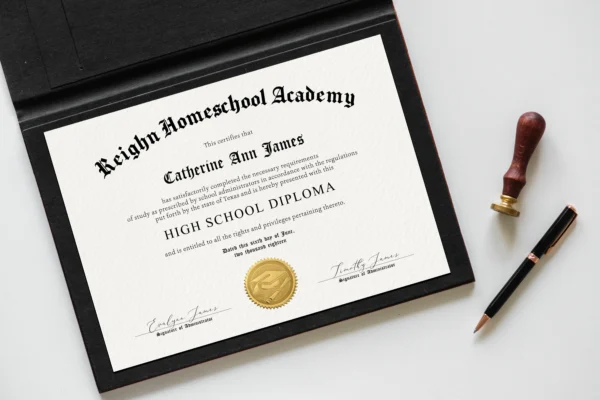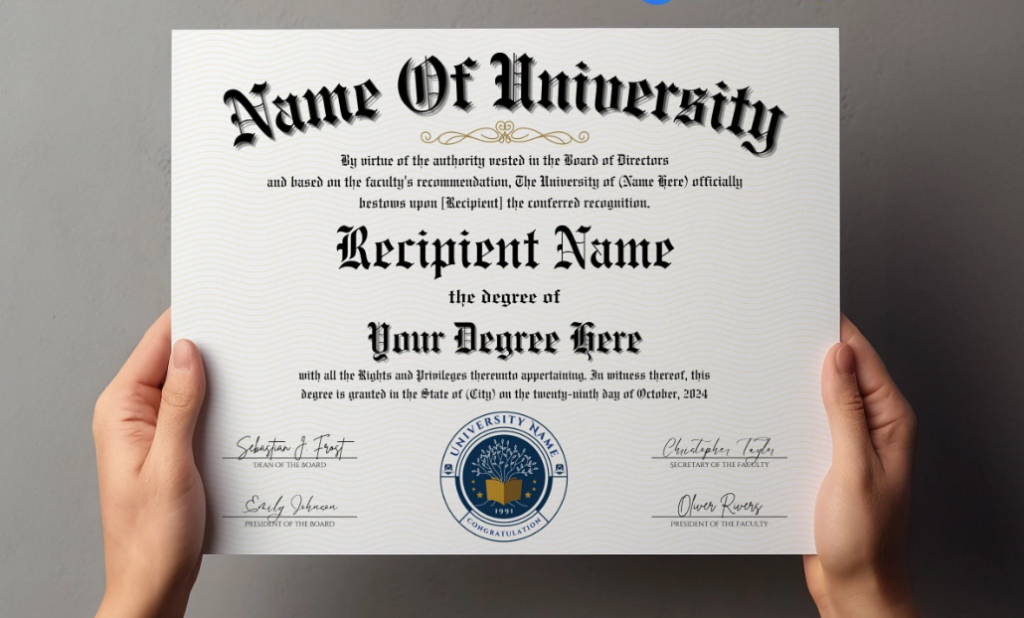How Fake Diplomas Can Help Boost Your Career Prospects

03
MAR
How Fake Diplomas Can Help Boost Your Career Prospects
Let’s face it—qualifications are often the golden key to better jobs and career advancement. But not everyone can pursue formal education or finish a long-forgotten degree. This is where fake diplomas can step in. These documents aren’t for show. They can boost your career if used wisely. A fake diploma might be the key you need. It could fill gaps in your resume or help you get a better job.
How Fake Diplomas Can Be Used
A fake diploma can open doors if you’ve felt stuck by a lack of qualifications. Here’s how it can work for you:
- Closing the Gaps: Maybe life got in the way, and you didn’t get to complete your education. A fake diploma can fill in the gaps on your resume. It will make you look perfect to potential employers. This is especially useful for roles where the listed requirements feel like mere formalities.
- Meeting Job Requirements: Ever looked at a job posting and thought, “I could nail this, but they need a degree”? A fake diploma can check that box and help you get your foot in the door. By having that diploma listed on your resume, you meet the minimum requirements without needing to enroll in a full-time program.
- Boosting Your Resume: Adding a diploma from a prestigious institution can make your profile stand out, especially in competitive industries where employers scan resumes for key qualifications. It’s a small addition that can make a big difference when you’re up against other strong candidates.
These benefits are real and can give you the confidence to go after opportunities you might have hesitated to pursue.
Why Fake Diplomas Appeal to Job Seekers
Fake diplomas let you control your career. They are faster and cheaper than traditional education. They appeal to those who feel stuck because they lack specific qualifications, even though they have the skills and experience to succeed. For people already working in their industries, these documents can act as a quick fix to meet job requirements for promotions or new roles.
Take someone in retail management, for instance. They may have 10 years of hands-on experience. But, they are excluded from higher-paying jobs that require a business degree. With a fake diploma, they can bypass this hurdle and compete on equal footing with degree-holding peers.
Legal and Ethical Considerations
Using a fake diploma comes with risks, but if you approach it carefully, you can minimize them. It’s all about being smart and understanding what’s at stake.
- Legal Risks: Depending on where you live or work, using a fake diploma could get you in trouble. Make sure you know the rules so you can avoid unnecessary complications. Research your industry and employer’s policies regarding educational verification. In some cases, simply omitting education details altogether might be safer than using fabricated credentials.
- Ethical Concerns: Some people worry about the “honesty” of fake diplomas, but let’s be real—many companies care more about your performance than the paper on your wall. If you have the skills to excel in a role, a fake diploma can be viewed as a means of leveling the playing field instead of as deception.
- Employer Checks: Background checks are common, but by choosing realistic credentials and not exaggerating your claims, you can keep things believable and reduce suspicion. Opting for a diploma that aligns with your actual expertise can make the difference between success and unnecessary scrutiny.
When used responsibly, a fake diploma can give you the boost you need without leading to unnecessary headaches.
Alternatives to Fake Diplomas
While a fake diploma can give you a quick advantage, pairing it with legitimate learning opportunities can make your career prospects even stronger. Consider these options:
- Online Degrees: Tons of universities offer flexible online programs that fit your schedule. These are real degrees that can help you build credibility while working. Combining a fake diploma for immediate needs with an online degree for long-term growth is a strategy some professionals use to their advantage.
- Certifications: Short-term certifications in your industry can add value to your resume. Whether it’s project management or IT skills, certifications show initiative and expertise. They’re also widely recognized as legitimate achievements, which makes them a great supplement to your profile.
- Skill-Based Courses: Platforms like Coursera, LinkedIn Learning, or Udemy offer courses that enhance your skills. Pairing these with a fake diploma can make your profile stand out even more by showing that you’re committed to professional growth.
These options are particularly appealing to those who want to strike a balance between speed and credibility in their career advancement efforts.
Case Studies of Fake Diploma Usage
People have used fake diplomas to overcome barriers and achieve career goals. Here are some stories you might find relatable: Fake
- From Retail to Corporate: A retail manager used a fake business degree to transition into a corporate admin role. Over time, their hard work and skills got them promoted, proving that sometimes the degree is just a way to get your foot in the door.
- Climbing the ladder: An IT professional used a fake master’s degree to secure a senior position. They excelled in the role, gaining real experience that cemented their place in the company.
- Breaking Into New Industries: A graphic designer looking to enter marketing used a fake diploma to secure an entry-level role in a creative agency. The diploma allowed them to shift focus without starting from scratch, and their portfolio ultimately carried them forward.
These examples show that with the right approach, a fake diploma can give you the chance to prove what you’re capable of.
Impact on Long-term Career Growth
A fake diploma isn’t just about getting the job—it’s about what you do after you get it. When used wisely, it can have a positive impact on your career in the long run.
- Building Your Reputation: Once you’re in the role, it’s your performance that matters. Show up, excel, and let your work speak for itself. A fake diploma is only the key to the door; the rest is up to you.
- Gaining Skills on the Job: A fake diploma can open doors, but it’s up to you to learn and grow in your role. Many people use this time to gain practical skills and earn real credentials.
- Creating Opportunities: Once you’ve proven yourself, you may find that your achievements matter more than the degree itself. Employers often reward hard work and results over titles.
A fake diploma can serve as a bridge to long-term success if you use it strategically and focus on building real skills along the way.
Why Employers Often Overlook Education
Many employers, especially in industries like tech or creative fields, are more concerned with results than education. Fake diplomas appeal because they help you bypass outdated systems that don’t always reflect your real abilities. If you have the skills and the drive to succeed, the diploma is often just a formality.
However, this means that once you’ve secured the position, the spotlight shifts to your performance. Employers care less about the degree and more about your contributions, giving you a chance to showcase what really matters.
Conclusion
Fake diplomas can be a game changer for your career when you’re feeling stuck or looking for a way to level up. They help you fill gaps, meet job requirements, and boost your chances of landing interviews. While there are risks, they’re manageable if you use these tools responsibly. Combine them with real learning and effort, and you’ll not only open doors but also thrive in the opportunities you create.
Your career is in your hands. With the right mix of strategy, ambition, and skills, you can take charge and shape the path you want to follow. Whether you use a fake diploma as a short-term solution or as part of a broader career strategy, the key is to back it up with the effort and growth that employers value most.




